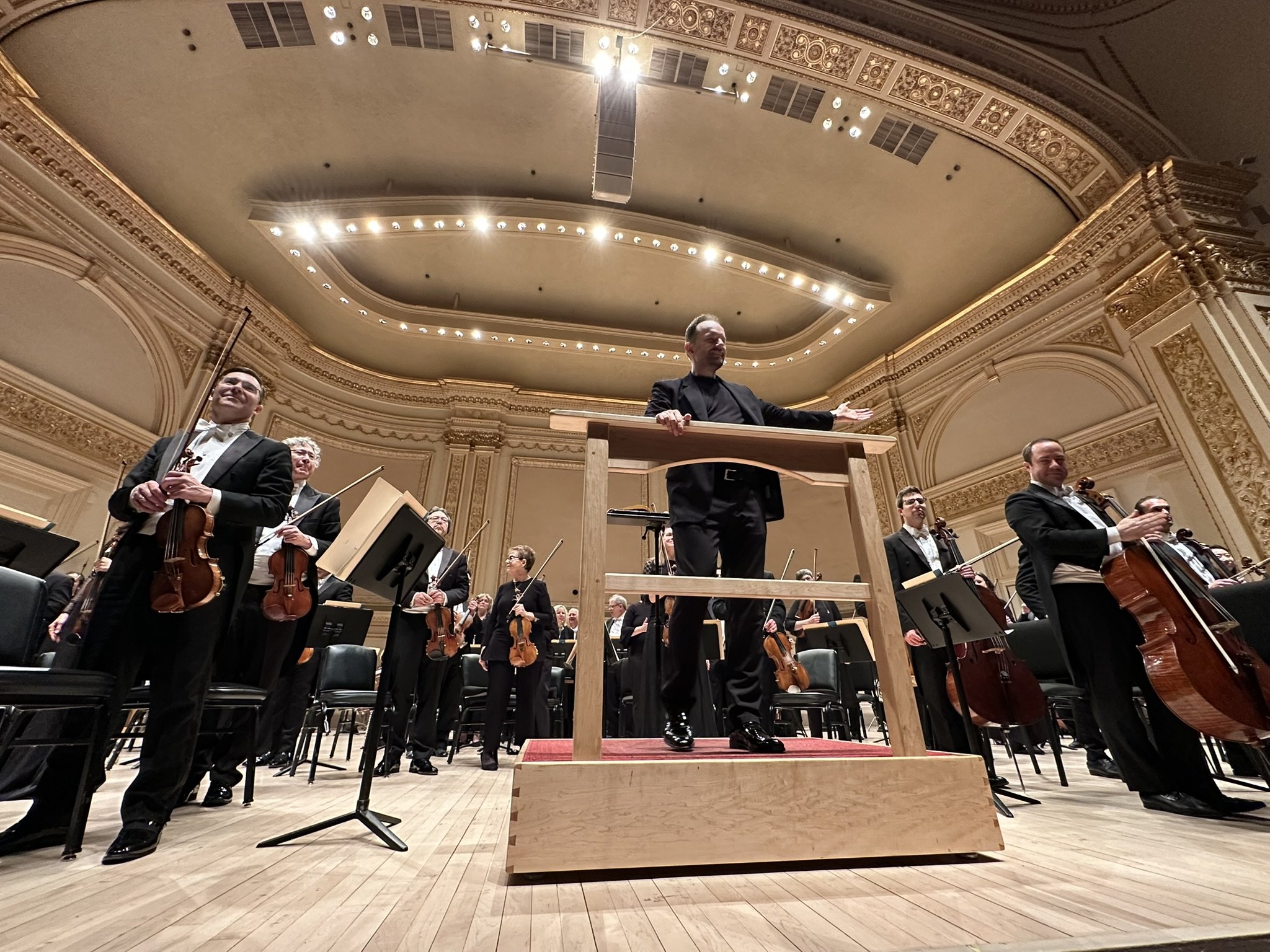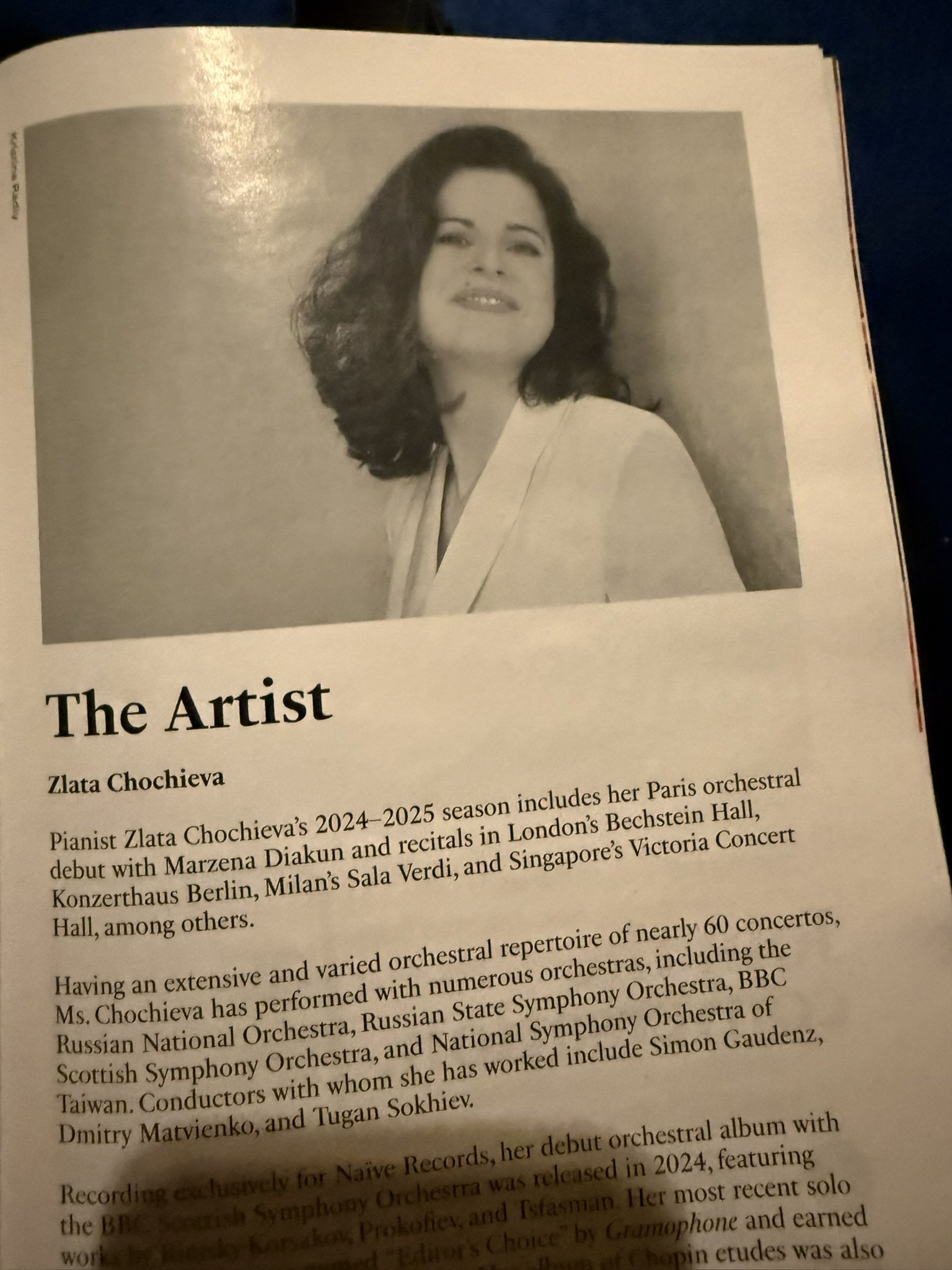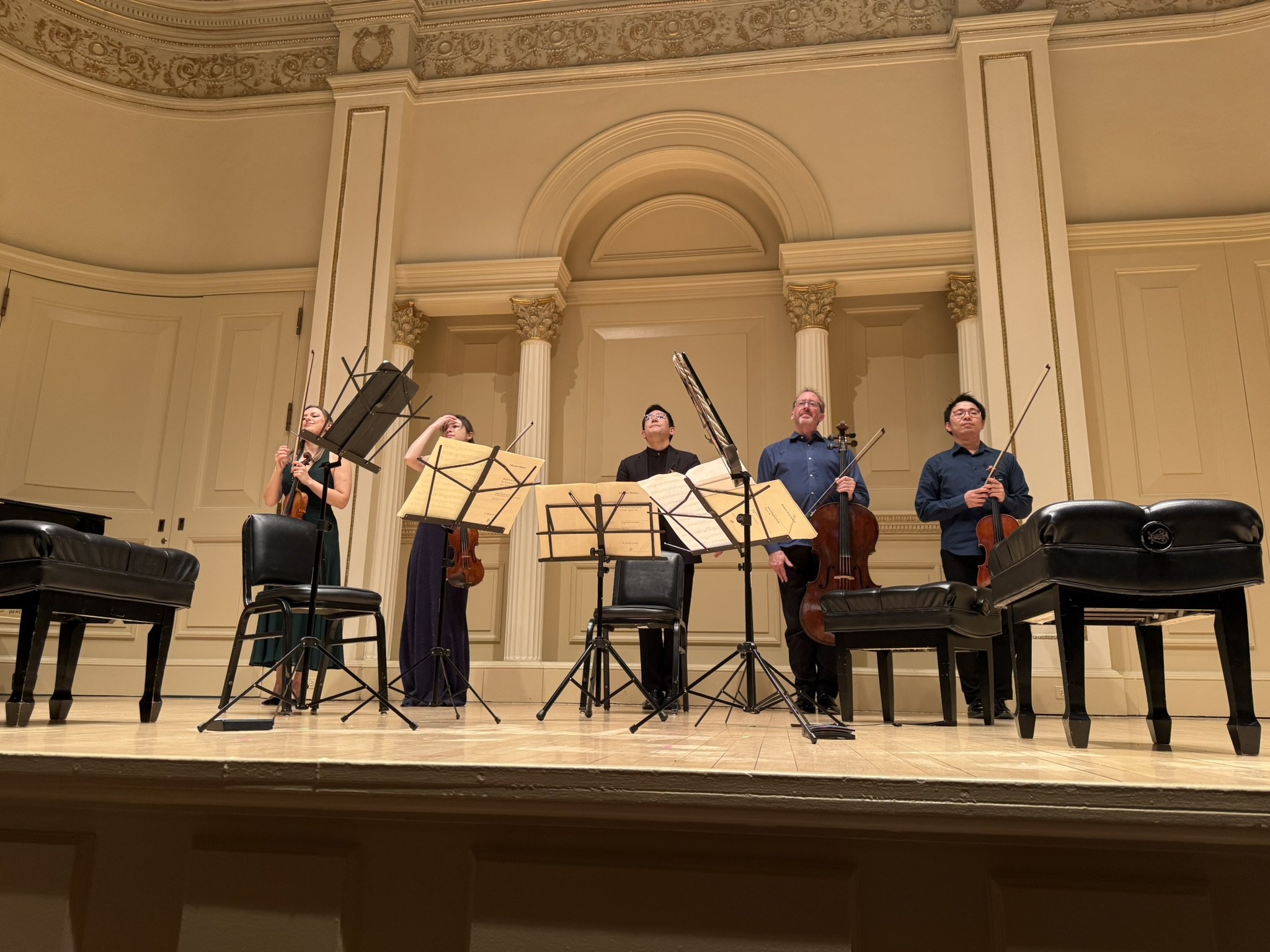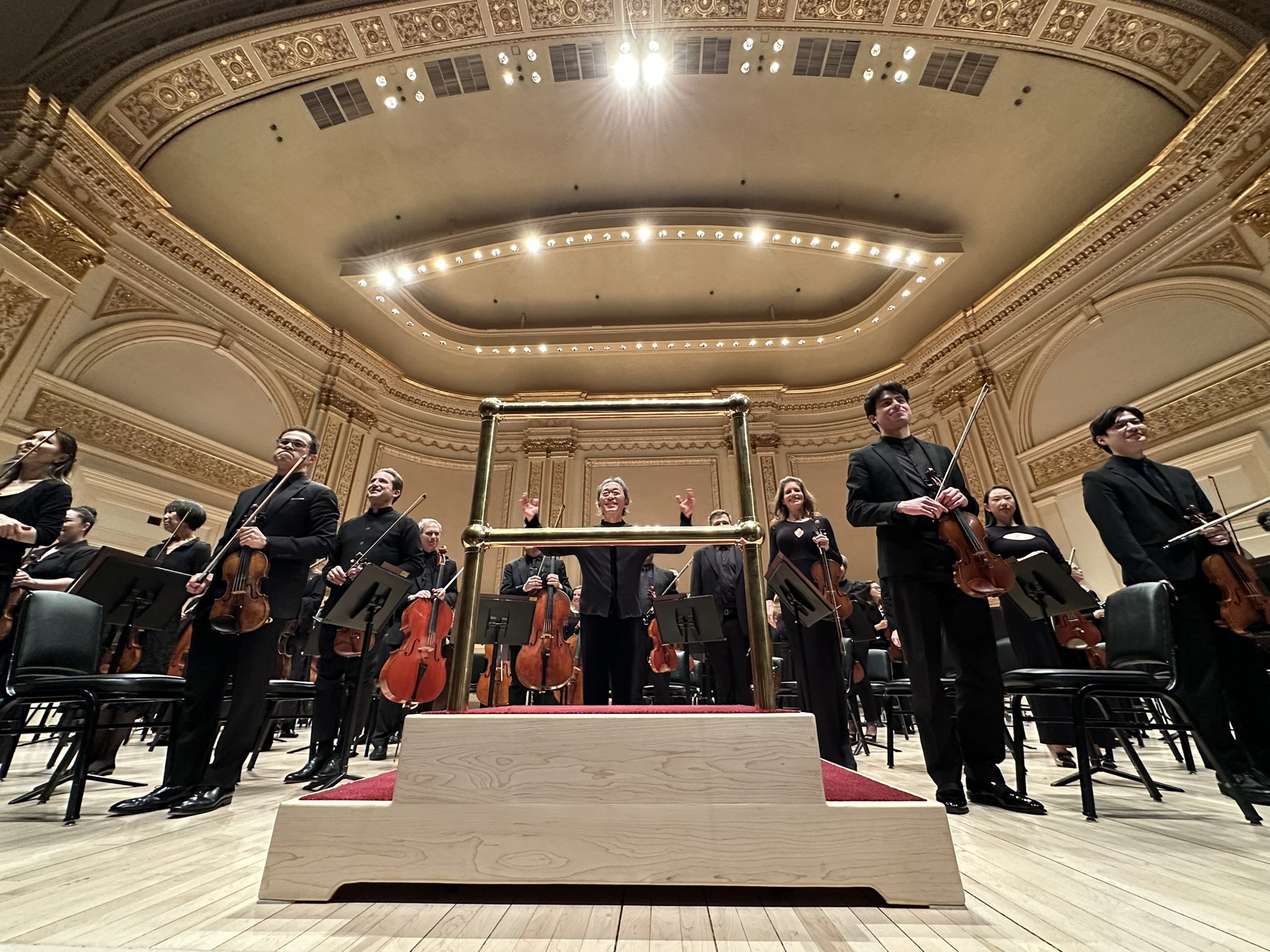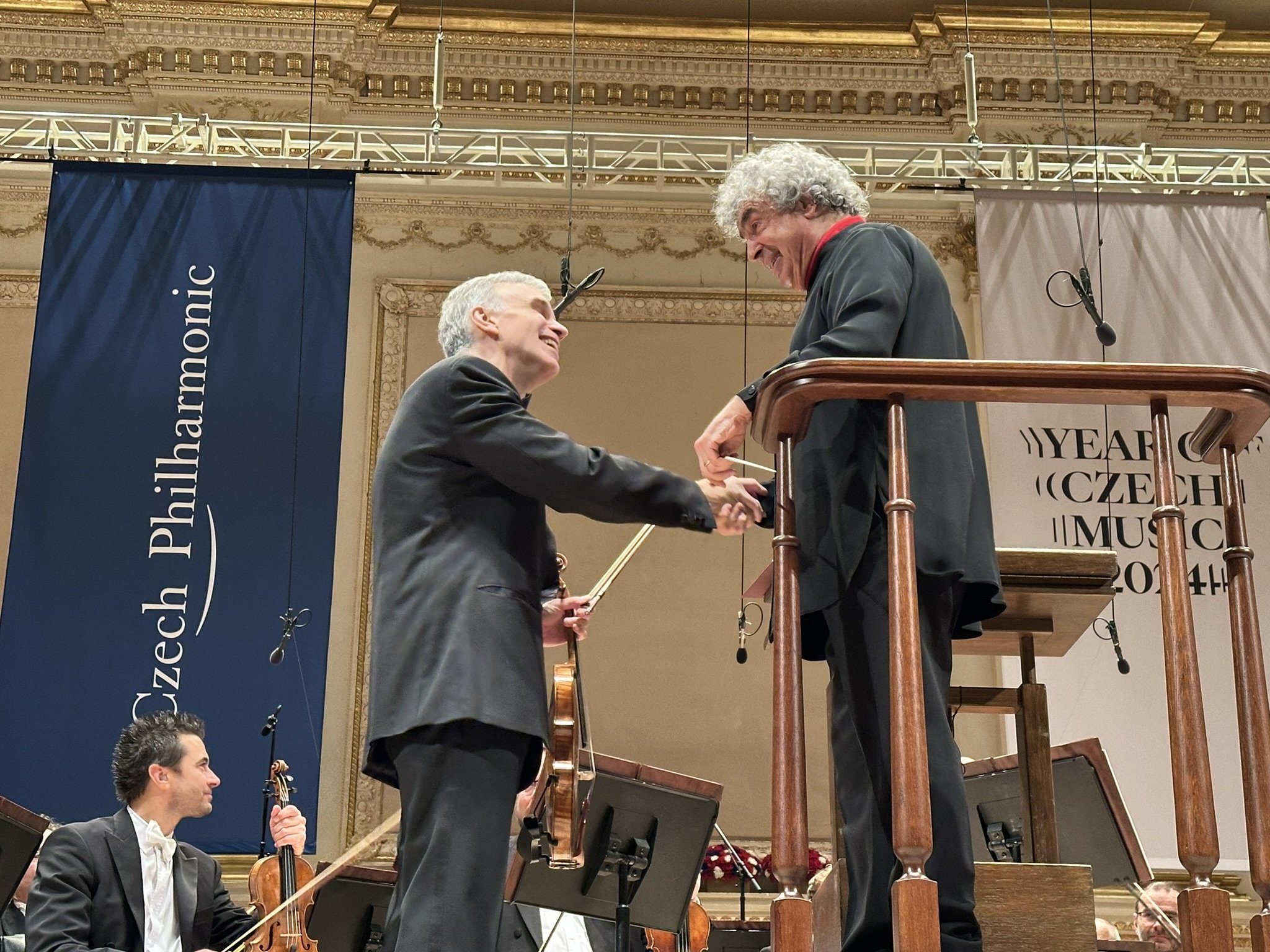At Carnegie Hall, the BSO and Andris Nelsons performed an all-Shostakovich program with Yo-Yo Ma in the Cello Concerto No. 1 and the Symphony No. 11. Before playing, Ma said, “We play Shostakovich so that no death is ever just a statistic.” The concerto’s D-S-C-H motif, ironic colors, and Russian soul resonated deeply, honoring the composer’s legacy.
Read MoreChochieva's Carnegie Debut
Zlata Chochieva’s Carnegie Hall debut (Apr 2) showcased Bach, Schumann, Brahms, Rachmaninoff, and Mendelssohn. Her delicate tone, deep expression, and nuanced control brought out both youthful intensity and mature depth. The recital, capped by Rachmaninoff and Villa-Lobos encores, was a masterful and memorable debut.
Read MoreBrahms’s Clarintet Quintet, Maria Ioudenitch, 1st Violin, Stephanie Zyzak, 2nd, Hiroki Kasai, Viola, Peter Stumpf, Cello
Frei aber froh, Marlboro Musicians at Weill Recital Hall
Marlboro Musicians at Carnegie Hall (2.21.25). Schumann’s Fairy Tale opened with clarinet warmth, viola’s insect-like calls, and piano evoking Marlboro’s pastoral sound. Kurtág’s Homage to Schumann (1990) contrasted fragile stillness with Florestan’s eruptions—an intense, fleeting soundscape. Schumann’s String Quartet No. 2 followed with lyric exchanges and athletic drive. Brahms’s Clarinet Quintet closed, highlighting Maria Ioudenitch’s luminous violin, her Adagio evoking a Tchaikovsky concerto. Across eras, the ensemble revealed connections, vitality, and new possibilities.
Read More2025-2026 Carnegie Hall Concerts
The 2025–2026 season at Carnegie Hall features the Israel Philharmonic Orchestra with Lahav Shani and Pinchas Zukerman, pianist Sir András Schiff, the Estonian Festival Orchestra with Paavo Järvi, the Estonian Philharmonic Chamber Choir with Tõnu Kaljuste, the Philharmonia Orchestra with Marin Alsop and Santtu-Matias Rouvali, accordionist Ksenija Sidorova, the Modigliani Quartet, and violinist Kyung Wha Chung with pianist Kevin Kenner, and more.
Read MoreMetropolitan Opera Orchestra's Brahms at Carnegie Hall
The Met Opera Orchestra performed Brahms’ Symphony No. 4 at Carnegie Hall under Myung-Whun Chung. The performance showcased the symphony’s rich interplay of strings and winds, featuring medieval motifs and complex patterns. Dynamic tempos and unified energy brought out Brahms’ romantic depth, with the orchestra’s expressive precision making the music vividly immediate and engaging.
Read MoreMuti and Chicago symphony's Verdi at Carnegie
Riccardo Muti and the Chicago Symphony Orchestra performed Verdi’s rare ballet The Four Seasons at Carnegie Hall, blending vivid orchestral colors with expressive solos. Muti’s touch brought warmth, nostalgia, and lyricism, culminating in Martucci’s heartfelt Notturno. The performance showcased the orchestra’s artistry and cultural depth, leaving a lasting, precious impression.
Read MoreAsmik Grigorian at Carnegie Hall
Asmik Grigorian and Lukas Geniušas gave a powerful Carnegie Hall recital in a 600-seat underground space. Performing Tchaikovsky and Rachmaninoff, they created intensely dark, personal, and lyrical worlds. Asmik’s rich vocals and Lukas’ commanding piano transformed each song into a confession, earning stormy bravos and a heartfelt, joyous audience response.
Read More100 Years of Czech Music, Shaham, Bychkov at Carnegie Hall,
To celebrate the conclusion of the "Czech Music Centennial Year," Bychkov and the Czech Philharmonic appeared at Carnegie Hall. Gil Shaham’s performance of Dvořák’s Violin Concerto was electrifying—brilliant in every solo, flowing seamlessly with the orchestra, like a game of music in motion. Bychkov, still recovering from back surgery, conducted Mahler’s Fifth with heartfelt intensity, drawing a warm, rich sound that mirrored the shifting currents of Mahler’s music. The orchestra’s breathing and awareness brought Prague and Moravia to life in every note. Having heard six orchestras recently, this performance reminded me how profoundly music can challenge and renew one’s own perspective.
Read MoreMao Fujita at Carnegie
Mao performed at Carnegie on Sunday afternoon. Yashiro felt like him, and the high notes in the second half were beautiful, reminiscent of Trifonov’s first Carnegie visit. Liszt was great, but Yashiro was amazing. Mozart and Beethoven felt vivid, with Mao’s breathing and energy connecting to the music like Pollini or Brendel. The hall was relaxed; I could see every detail and hear even snoring during Appassionata. Mao looked happy throughout. His performance hinted at Chopin’s interest in Beethoven, just as Yashiro reflected Scriabin. Classical music’s power to unite different approaches was deeply appreciated in these chaotic times.
Read MoreYulian's Both Hands
Yulian Avdeeva performed in New York, filling the hall with emotion. Since having COVID, I felt a tightness in my heart, tears streaming, yet Liszt flowed through Yulian’s hands like a dream—rich, elaborate, and story-filled. Chopin’s delicate yet bold works were rendered on an orchestral scale. Yulian’s program wove Chopin and Liszt masterfully: Dance, Barcarolle, Chopin’s homage to Beethoven, Polonaise, and Liszt’s B minor Sonata. The encore was Liszt’s arrangement of Verdi’s Rigoletto quartet. A truly wonderful Romantic experience.
Read More
